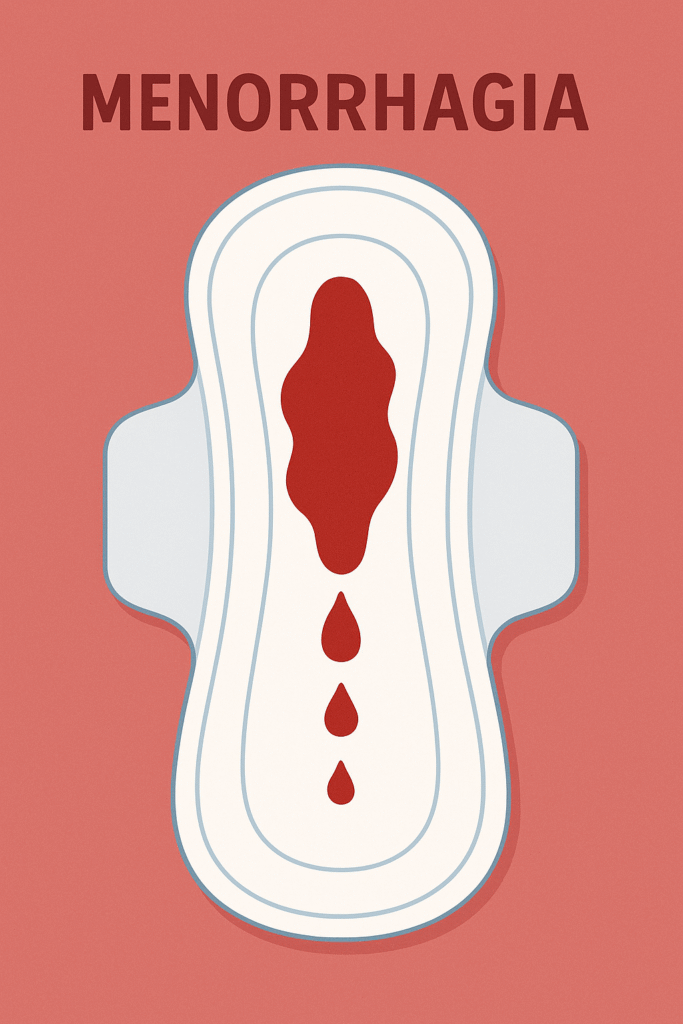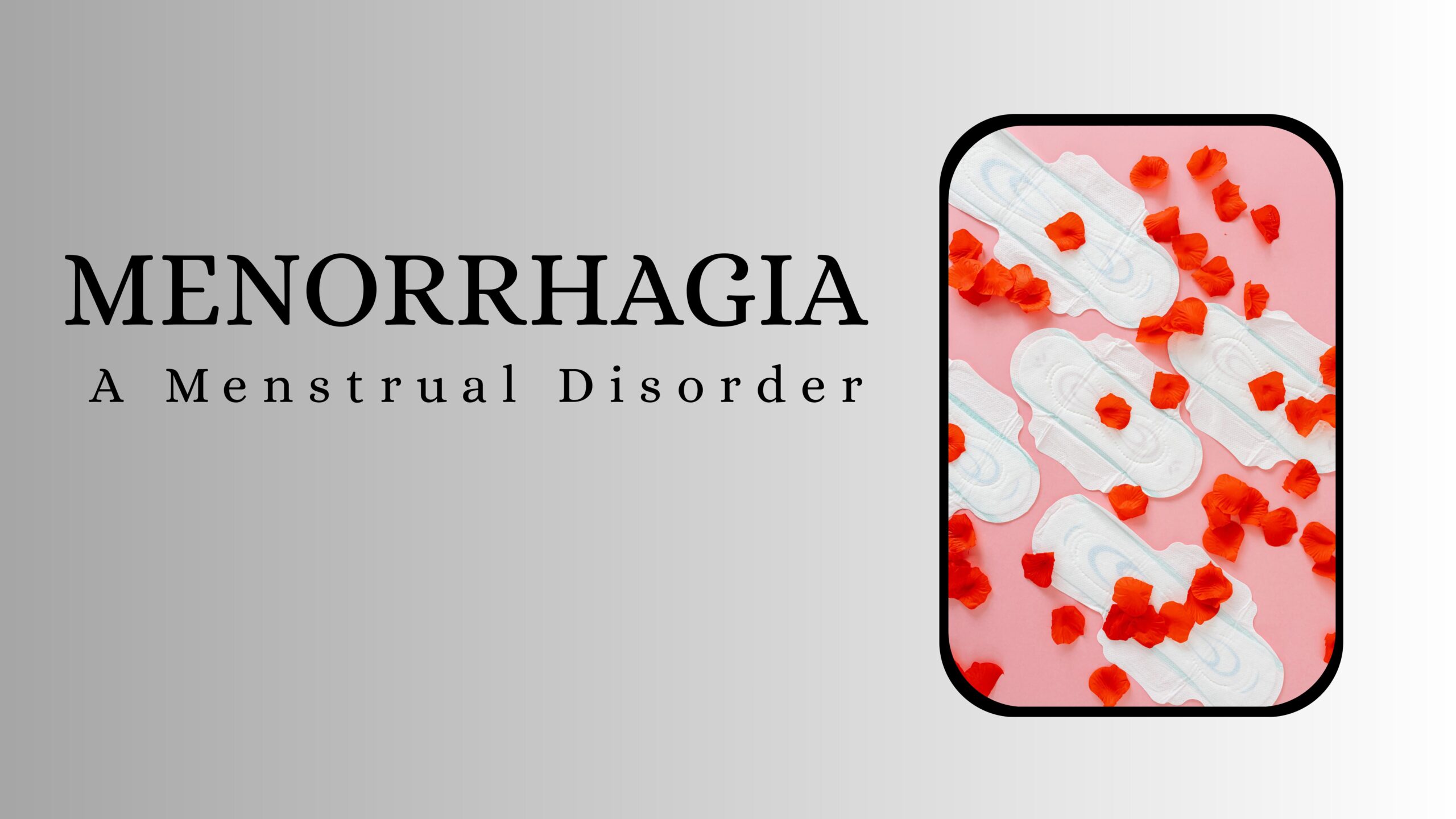Table of Contents
Menstruation is natural process, but for some women, it becomes a source of discomfort due to excessively heavy flow — a condition known as Menorrhagia. If you’re changing pads every hour or feeling drained during your period, you are not alone. Let’s discuss the causes, symptoms, and remedies to manage this condition naturally.
What is Menorrhagia
Menorrhagia is defined as abnormally excessive or prolonged menstrual bleeding. While flow may vary, if you’re soaking through pads or tampons every 1–2 hrs or flow for over 7 days, it may be a sign of an underlying problems.

Cause
Menorrhagia is a symptom of some underlying pathology:
1. Hormonal Imbalance
Estrogen and progesterone imbalance can cause excess endometrial buildup.
2. Uterine Fibroids
Noncancerous growths in the uterus may lead to heavy flow.
3. Polycystic Ovary Syndrome (PCOS)
Irregular ovulation can leads to thickening of the uterine lining.
4. Thyroid Disorders
Hypothyroidism or hyperthyroidism can upset menstrual cycles.
5. Bleeding Disorders
Conditions like Von Willebrand’s disease can lead to heavy bleeding.
6. Intrauterine Devices (IUDs)
Non-hormonal IUDs may cause heavier flow.
Symptoms to Watch For

- Bleeding that lasts over 7 days
- Soaking through one or more sanitary products every hour
- Requiring to use double sanitary protection
- Awaked at night to change protection
- Passing bulkier blood clots
- Signs of anemia: tiredness, shortness of breath, pale skin
Natural Remedies & Lifestyle Tips
While it’s important to consult a doctor for diagnosis and treatment, some natural remedies can help manage mild cases of menorrhagia:
1. Iron-Rich Diet
Eat foods like spinach, dates, pomegranate, legumes, and red meat to prevent or correct iron deficiency.
2. Herbal Remedies
Ginger Tea: May help decrease inflammation and pain.
Cinnamon: Known to help control excessive bleeding and cramping.
Chasteberry (Vitex): applied traditionally to balance hormones.
3. Hydration
Drink excess water to stay hydrated and support overall circulation.
4. Exercise Regularly
Mild to moderate exercise can help balance hormones and diminish stress.
5. Manage Stress
Practice yoga, meditation, or deep breathing to help diminish hormonal fluctuations triggered by stress.
When to See a Doctor
- If you experience heavy flow regularly
- If menses interfere with daily activities
- If you feel weak, giddy, or faint
- If you are concerned about your fertility or hormonal health
Treatment
(a) Non-hormonal treatment:
| Tranexamic acid | decrease blood loss |
| NSAIDs | decrease blood loss and relieve pain |
(b) Hormonal treatment:
| Combine oral contraceptive | regulate cycle, decrease bleeding |
| Progestin | control bleeding |
| Levonorgestrel intrauterine system | one of the most effective long-term treatment |
| GnRH agonists | short-term suppression of menstruation |
FAQs About Menorrhagia
Q: Is menorrhagia a serious problem?
A: It can be, especially if it leads to anemia or indicates an underlying problems. Always seek medical advice.
Q: Can menorrhagia be controlled naturally?
A: In mild cases, dietary and lifestyle changes can help. Severe cases require medical treatment.
Q: Is it related to Polycystic Ovarian Syndrome or Amenorrhea?
A: Yes, hormonal imbalances in PCOS can cause both heavy flow and missed periods.
Final Thoughts
Menorrhagia is more than just an inconvenience—it can affect your physical and emotional well-being. While home remedies may offer some relief, always consult a healthcare sources for accurate diagnosis and effective treatment.
> Bonus Read: Fatty Liver Diet Plan – Eat for perfect Hormone Health
